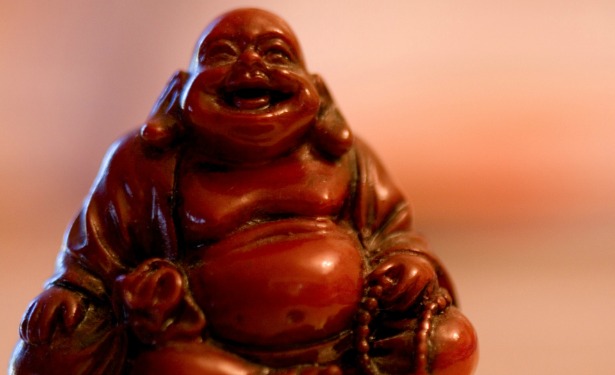
I’m finding that one of the toughest things about Epicureanism is that it doesn’t seem to offer any solution to what I believe is my fundamental problem: a lack of meaning in my day-to-day life.
Epicurean philosophy is very smart about what brings us pain and what brings us pleasure. It provides a solid analytical framework for assessing whether to do or not do something. It asks you to weigh the short term and long term impacts of your actions on your level of happiness and to live accordingly. Epicurus gave concrete advice and advocated a somewhat ascetic lifestyle.
Those things are good, and my experiment to date has shown that embracing elements of an Epicurean lifestyle can increase happiness (or rather, decrease unhappiness). But when I think about the natural end result of this lifestyle (a sort of minimalist retirement), I can’t help but think there really is no point to it. Living a pleasurable life, achieving ataraxia, seems appealing on the surface, but unsustainable as a lifetime pursuit.
This might be one of those core Eastern vs. Western philosophical differences. Eastern thought seems to emphasize a sort of “things are as they are, be joyful and generous” mentality. Western thought seems to say “the world can be a cruel place and you should make it less cruel via good works and this will give your life meaning.”
Epicurus, though he is a part of the Western philosophical tradition, seems to think more like a Buddhist than a Christian.
Both schools of thought appeal to me. I like the idea of having a personal “mission.” For example, reconceiving The Ancient Wisdom Project as a mission to convince people that studying the ancients and adopting their teachings can be smart is very attractive to me. Proselytizing for Ancient Wisdom seems like a viable way to give my life some sort of meaning.
On the other hand, I’m aware that this mission could fail, and by embracing Stoic/Buddhist/Hindu/Epicurean principles of detachment and pleasure, I can learn to enjoy my life as it is and not concern myself too much with materially changing the world. Embracing “don’t worry, be happy” as my core life principle could be a very viable and enlightening path.
It seems likely that these aren’t mutually exclusive. Consider a piece of the abstract from the journal article titled Some Key Differences between a Happy Life and a Meaningful Life
Being happy and finding life meaningful overlap, but there are important differences. A large survey revealed multiple differing predictors of happiness (controlling for meaning) and meaningfulness (controlling for happiness). Satisfying one’s needs and wants increased happiness but was largely irrelevant to meaningfulness. Happiness was largely present-oriented, whereas meaningfulness involves integrating past, present, and future.
This seems to line up with East vs. West dichotomy. When you think of Buddhism, for example, you think of mindfulness, which is a way to be focused on the present. When you think of Christianity, you think of the story of Adam and Eve and the fall of man, man’s redemption through Christ, and the rewards of embracing Christianity (salvation).
Buddhism seems very much happiness focused, while Christianity seems meaning focused. Buddhism is focused on the present, while Christianity creates a story about man that links past, present, and future.
I am, of course, oversimplifying, but I think it’s a useful simplification because it may help us diagnose our own problems.
For example, let’s say you are struggling with your job.
If it’s because it is high stress, low paying, and time consuming, you may have a happiness problem.
If your job is relatively easy and pays well, but you think it is pointless, you may have a meaning problem.
Depending on which problem you have, the actions you take will vary dramatically. If it’s a happiness problem, you just need to find a job that pays better, reduces stress, etc.
If it’s a meaning problem, you either need to find a way to inject more meaning if your life, or reject the meaning-centric philosophy entirely and embrace the happiness philosophy.
It’s likely that you’ll have a combination of both happiness problems and meaning problems, and thus will need to adopt a mixed strategy. Perhaps you could start with Epicurean minimalist approach, and then when you have reduced the anxiety in your life, you can free up time to pursue meaningful projects.
Thoughts on this subject are always welcome. I’m particularly interested in any experiences you’ve had that clearly distinguishes meaning and happiness.